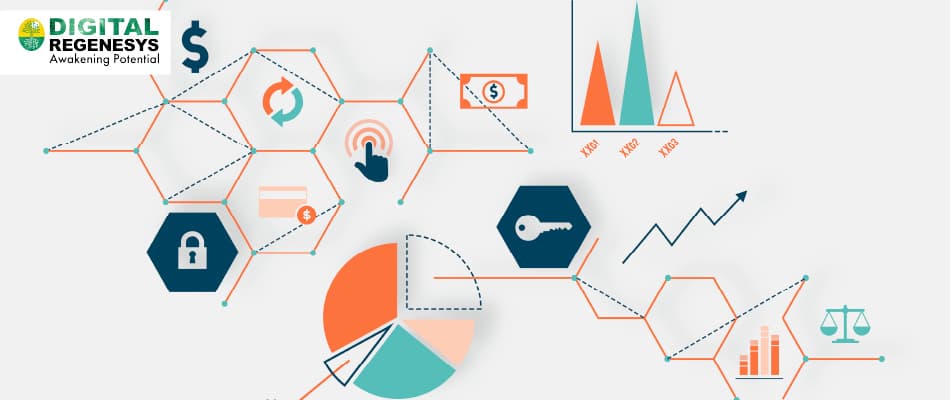Understanding The Effect Of Soft Skills In Organisational Success
In the ever-evolving business environment, the significance of management development courses has remarkably grown. Management Advancement Programmes (MAP) courses have evolved from emphasising technical expertise and knowledge in a particular area to now operating as nurturing workshops for developing future leaders. They provide the necessary skills and knowledge to address the intricacies of contemporary organisational obstacles. In today’s interconnected workplaces that prioritise individuals with appropriate skill sets, the importance of soft skills cannot be overstated.
This in-depth article discusses the important role and strong impact of soft skills in management certificate programmes. It highlights their vital role in encouraging personal and professional growth, driving success in organisations, and fostering sustainable leadership.
Understanding Soft Skills
Soft skills, sometimes called interpersonal or emotional intelligence, cover a wide range of qualities crucial for promoting successful communication, teamwork, and relationship development in organisational settings. Among the various skills included are communication abilities, which go beyond just being able to express thoughts clearly and involve listening actively and showing empathy through verbal and non-verbal signals. Moreover, soft skills include qualities like adaptability, allowing people to smoothly navigate through changing and unforeseeable circumstances, and problem-solving abilities, enabling them to creatively and analytically tackle obstacles.
Leadership effectiveness, an essential soft skill, involves more than just giving commands; it also includes the capacity to encourage, inspire, and empower individuals to accomplish common objectives. In addition, mastering the skill of resolving conflicts effectively is crucial for positively handling disagreements between people and creating a peaceful atmosphere in the workplace. Contrary to technical skills, soft skills are developed through experiential learning, introspection, continuous practice and structured training programmes like professional development courses for managers, making them crucial for personal and proficient growth in the business world.
What Soft Skills You Gain Through MAPs?
There are many crucial soft skills one can learn through Management Advancement Courses. MAPs enhance communication, leadership, adaptability, and emotional intelligence for future managers and their technical skills. Let’s discuss below:
Effective Leadership
Effective Leadership goes beyond just giving orders; it involves motivating, inspiring, and enabling others to work together towards common goals. Soft skills like empathy, active listening, and emotional intelligence are the foundation of successful leadership. Management advancement programmes strongly encourage these qualities in future leaders to drive organisational success.
Nurturing a Collaborative Culture
Collaboration is crucial for promoting innovation and sustainable growth in the current interconnected global environment. Soft skills such as teamwork, negotiation, and conflict resolution are crucial for fostering organisational collaborative culture. Management advancement courses trigger individuals to enhance these skills by engaging in hands-on group projects, simulated situations, and real-life obstacles.
Improved Communication Dynamics
Successful leadership and organisational harmony rely on effective communication. Verbal and non-verbal communication, persuasion, and storytelling are crucial for effectively conveying ideas, forming connections, and addressing conflicts. Management development programmes concentrate on enhancing these skills by organising well-designed workshops, engaging in role-playing exercises, and offering helpful feedback.
Encouraging Adaptability and Resilience
In the fast-paced business world, flexibility and toughness are essential traits for effectively handling uncertainty and change. Leaders who possess soft skills such as adaptability, efficient problem-solving, and expert stress management thrive in constantly changing and unpredictable situations. Management certificate programmes provide ample opportunities for learners to enhance their skills by tackling different challenges and participating in authentic simulations.
In essence, incorporating soft skills into leadership development courses enables future leaders to effectively manage complex workplace environments, promote team motivation, and drive achievement in the ever-changing business world. Next, we will explore how these soft skills directly impact organisational success.
Effect Of Soft Skills On Organisational Success
A company’s growth depends on improving employee’s soft skills, which contribute to better workplace teamwork, communication, and adaptability. By instilling qualities such as empathy, communication, and adaptability in their employees, businesses can improve their overall success, resulting in numerous advantages. Let’s explore in more detail how these social skills influence and improve the success of a company:
Enhanced Employee Engagement and Commitment
Businesses that prioritise enhancing soft skills have a notable impact on employee satisfaction and retention. When employees feel valued, heard, and supported at work, they develop a sense of commitment and allegiance to the organisation. Investing in enhancing soft skills such as empathy, active listening, and conflict resolution supports organisations in creating a workplace where employees feel appreciated and listened to. This fosters a sense of belonging and encourages employees to engage in the company’s successes, resulting in higher employee retention and lower turnover costs. Moreover, employees who are engaged are more likely to go above and beyond their job responsibilities, leading to increased productivity and overall effectiveness within the organisation.
Increased team productivity
Teams comprised of individuals with strong interpersonal skills consistently outperform other teams. Effective communication, seamless collaboration, and adept conflict resolution within the team create a culture of synergy and mutual respect. Strong interpersonal skills allow team members to navigate challenges effectively, leverage each other’s strengths, and achieve shared goals. This results in the team experiencing higher levels of efficiency, creativity, and happiness among employees. Additionally, teams with a strong sense of trust and cooperation are more capable of tackling obstacles and can easily adapt to new circumstances while maintaining a high level of performance.
Increased customer approval
Soft skills are essential in shaping the customer experience and establishing long-lasting relationships with clients. Employees with excellent interpersonal skills such as empathy, communication, and problem-solving are better equipped to understand and address customer needs effectively. Employees enhance the quality of service and make lasting customer experiences by establishing genuine connections and demonstrating a genuine interest in customer happiness. This results in increased customer loyalty, favourable word-of-mouth, and a stronger brand reputation in the market. Ultimately, businesses prioritising improving their workers’ interpersonal skills gain a competitive edge by delivering exceptional customer experiences, leading to long-term prosperity and growth.
Sustained high levels of leadership quality
Leaders must possess soft skills in order to inspire and guide their teams towards accomplishing shared goals. Leaders who prioritise empathy, integrity, and ethical decision-making create a culture of trust, transparency, and accountability within their organisations. Leaders who pay attention to their employees’ worries and appreciate their ideas can create a positive work atmosphere where all individuals feel encouraged to make meaningful contributions. This not only boosts employee engagement and morale but also fosters innovation and creativity. In addition, leaders who possess high emotional intelligence and robust interpersonal abilities are better equipped to steer their organisations through challenging situations and transitions. As a result, organisations headed by leaders with strong interpersonal abilities are more prepared to tackle difficulties, adapt, and sustain continual success in the long term.
Effective soft skills are essential for the success of the organisation and its employees. Emphasising empathy, communication, and collaboration in the workplace promotes an environment where employees feel valued and engaged, leading to higher retention and productivity levels. Employees can improve their skills by attending training sessions and collaborating with a mentor, eventually benefitting the organisation’s goals. Ultimately, cultivating soft skills within the company promotes an environment of achievement and adaptability.
Conclusion
In summary, soft skills are crucial elements for success in management advancement courses and organisational leadership models. By placing utmost importance on developing these skills, companies can facilitate the rise of a new generation of leaders who possess empathy, flexibility, and toughness. This fosters not just personal and institutional success but also promotes a culture of working together, creativity, and longevity. As the business environment constantly changes, the importance of soft skills in management certificate programmes will keep growing, shaping future leaders and organisations with exceptional skills and effectiveness.
Sign up for Digital Regenesys’s Management Advancement Programme to acquire the crucial soft skills required for leadership success. Seize this chance to develop empathy, flexibility, and resilience and advance your career to greater levels. Come with us and develop into the leader your company requires!
Frequently Asked Questions (FAQs) – Why Soft Skills Matter in Management Advancement Programme (MAP): Importance and Impact
Q1. What are Management Advancement Courses, and how do they differ from Management Certificate Programmes?
Management Advancement Courses focus on sharpening specific skills for managerial positions, whereas Management Certificate Programmes cover a similar range of managerial knowledge and lead to formal certification. Both routes are beneficial for advancing one’s career and meeting future and current leader’s varying requirements and desires.
Q2. Can you explain the objectives of the Management Advancement Programme and its benefits?
The Management Advancement Programme (MAP) is designed to improve leadership skills, enhance managerial abilities, and promote strategic thinking in participants. Through participation in MAP, people develop a more profound comprehension of how organisations work and become more adept at overcoming complicated obstacles, leading to advancement at both personal and organisational levels.
Q3. What is the meaning of MDP, and how is it relevant to Management Advancement?
MDP, which means Management Development Programme, is equal to Management Advancement, indicating efforts focused on developing managerial skills. Understanding the importance of MDP is essential as it highlights the significance of ongoing learning and growth in the field of management.
Q4. How do Management Advancement Programmes include Leadership and Management Advancement?
Management Advancement Programmes intentionally include elements of Leadership and Management Advancement as these components emphasise developing successful leadership approaches, promoting an environment of creativity, implementing strategic management techniques, and preparing managers to guide their teams and organisations to achieve success. The Management Advancement Programme offered by Digital Regenesys provides life-changing possibilities in management and leadership. The MAP was created to help individuals reach their maximum potential in leadership and communication.
Q5. What specific topics are covered in professional development courses for managers, and how do they enhance managerial skills?
Professional development courses for managers cover a wide range of subjects designed to tackle the complex challenges of contemporary management. These courses focus on enhancing manager’s communication skills and conflict resolution techniques, equipping them with useful tools and knowledge to succeed in their positions and enhance organisational performance.













